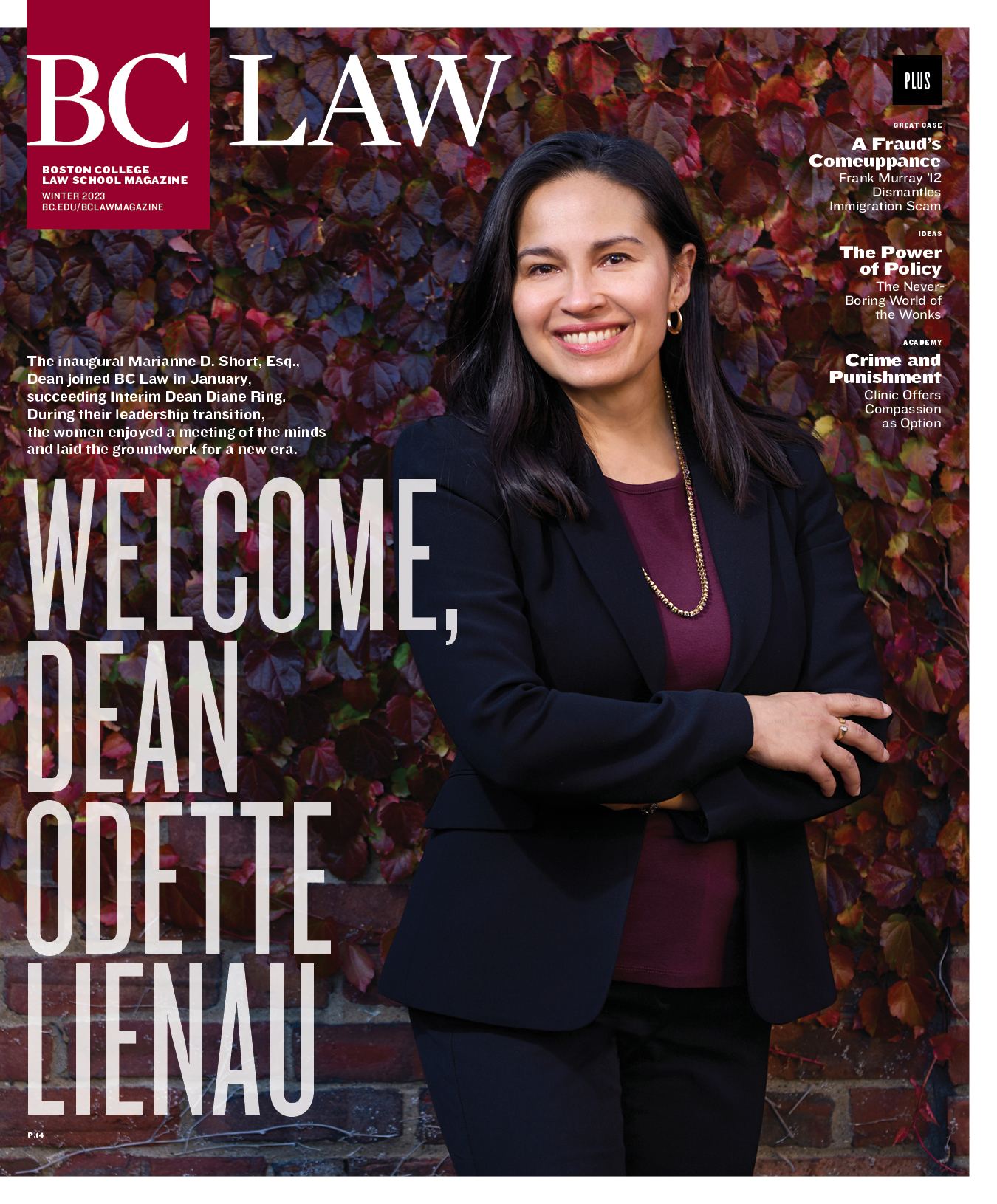Mental health has taken on new urgency in recent years. Observing that phenomenon—and having experienced depression himself—Jim Warner ’92 teamed up with BC Law School last year to create a means of communicating with and offering stories and support to law students and fellow lawyers.
The endeavor—part of a Law School-wide initiative—has included events at BC Law (via Zoom and in-person) featuring alumni who have dealt with various types and degrees of mental distress and recovery, and the Mental Health Impact Blog Series of personal essays published at bclawimpact.org.
Warner, general counsel at Elevated Facility Services in Tampa, Florida, launched that series with the post “Lawyers Helping Lawyers: Comfort on the Path to Well-Being.” In it, he described being plunged into a “major depressive episode in my late forties.” With therapy and a course of antidepressants, he rebuilt his emotional and physical health in about three months and, with his psychiatrist’s blessing, considered himself cured.
Four years later, however, “my old friends, Anxiety and Depression, knocked on my door again,” he wrote. “This time they hadn’t booked a return ticket.” The tale moves from his struggles with issues like sleepless nights and paranoia to a gradual healing and sense of hope. He discovered, that “with patience and perseverance, it does get better. A lot better.” The essay concludes with helpful resources and advice he received, among which was establishing “tent poles,” or sturdy habits and relationships that provide support when one or another step toward wellness falters.
Warner said his goal for this initiative is encouraging all concerned members of the BC Law community to get involved in the activities or to write a guest post. To do so, contact him at jim.warner.uk@gmail.com.
The blog series is meant to shine a light on mental health struggles and to share personal stories and insights into recovery. It is not meant to provide professional advice or counseling.



